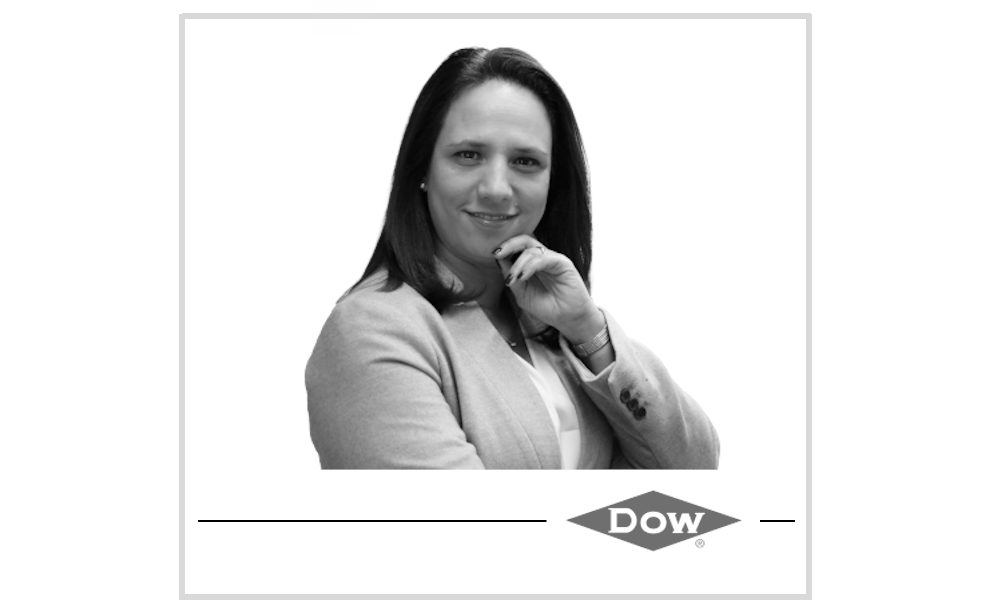Living with purpose and leaving a footprint

Verónica Pérez
President of the Northern Region of Latin America
DOW
“There is no better time to work on our legacy than right now.”
There are countless definitions of what a leader’s legacy represents. From those definitions with a legaloid slant to others with a focus on professional and career development. The one I like the most and that I will discuss in this opportunity is the one that considers legacy as the result of the decisions we make in our lives, which are in turn guided by our personal values. In other words, a strong legacy results from combining a series of consistent, congruent and coherent actions that are passed on and shared with others as an example for posterity. It is the impact and influence we exert with those we live with on a daily basis and who will be responsible for continuing to transmit it by their own example.
But have you thought about the legacy you want to leave for posterity?
You may be saying to yourself, “I’m still too young to think about that,” “It’s too early for my legacy to add value,” or “That’s for another professional profile, it’s not for me,” and so on.
When I talk about this topic with my team members or colleagues, which include some young people just starting their careers and other experienced leaders in their field, I like to see their faces when I reaffirm that “There is no better time to work on our legacy than right now.”
Let’s think that it is never too early to consider the future impact that each of us will have on the people around us, whether in our closest family, friends and relatives, in the organization or team to which we belong, or even in the community and other people we are in a position to influence on a daily basis. Whether we realize it or not, we leave a legacy every day.
It’s not about worrying about what will happen tomorrow, but about creating that tomorrow and leaving an impact. Living with purpose, based on values and leaving a footprint.
I asked myself this question all the time. And that has helped me to direct my career with purpose, professionally, personally and communally.
When I began my studies, as one of the few women in the faculty of Chemistry at UNAM in the late 1980s, I set short, medium and long term goals. Goals based on my abilities, my interests, my values and what I wanted to achieve in the future.
I still remember seeing those buildings on the university campus, and focusing my attention on the majestic murals of David Alfaro Siqueiros and Juan O’Gorman in the Library and the Rectory of Ciudad Universitaria in Mexico City – impossible not to! – And precisely, I was thinking about the legacy that those artists had left us, and what did I want mine to be to leave for the future?
Also in those years I remember a story that fascinated me because it perfectly exemplifies the importance of asking ourselves the path we want to pave and the legacy we want to leave.
The story of the Swedish chemist Alfred Nobel.
At the age of 33, Nobel discovered that by mixing nitroglycerin with an absorbent material – impossible for my scientific side not to emerge – a powder was produced that could be percussed using detonators, thus leading to the creation of dynamite.
With his invention, Alfred Nobel amassed his fortune, as well as with the large-scale manufacture of armaments. But his life took a turn when his brother Ludvig died of a heart attack, and due to misinformation, a French newspaper believed it was Alfred who had died, and published an obituary that branded him a “merchant of death” who had enriched himself by developing new ways to “maim and kill”.
The Gallic newspaper later corrected the error, but not before Alfred had the unpleasant experience of reading his own death notice. That is the incident that may have caused him to have a crisis of conscience and led him to re-evaluate his career.
It has been told that Alfred Nobel became so obsessed with his post-mortem reputation that in his will he made clear his interest in leaving part of his fortune to found the Nobel Prize and with it his desire to leave a better legacy.
Some believe the story is a myth, while others argue that it was just one of many factors that helped shape the inventor’s decision.
Whether it is one version or the other, it should be clear that we do not need to be great creators or tycoons to make the decision to embark on our own destiny and define our legacy. But that we are the inventors of our future.
In more than 25 years of career, I continue to learn, and along the way I have synthesized in 5 key points some recommendations to help you build your own legacy:
- Don’t leave it to chance. Building a legacy is your job. It must be based on your own values, the best of you, and your own purpose in the various spheres where you operate. Working proactively on it, with values and objectives, will help you prosper and build that accumulation of actions that will remain for posterity.
- Being consistent is not enough. We must be consistent, we must work for it, but we must also be congruent with what we have professed, consistent with what we have preached and what we have promised.
- Responsibility, first and foremost. Our history, like our legacy, is our own responsibility. No one else’s. And in the same sense, the impact we leave on others. Even the smallest action has an effect. Reflect on what you want to achieve, but also on how you will do it.
- Correct and learn. It is valid to err, but it is equally valid – and imperative – to rectify. There are so many stories in the world about leaders who have prospered without thinking about how, without reflecting on the negative effects of their actions. Therefore, it is essential to recognize our areas of opportunity and, above all, to learn from our mistakes.
- Continuous improvement. Herbert Henry Dow, founder of Dow, the materials science company founded in 1897, is credited with the phrase, “If you can’t do it better, why do it?” and it is a reflection that invites us to reinvent ourselves, to improve ourselves, and to be a better version of ourselves and everything we do.
You don’t need to be a great inventor, a war industry magnate or a renowned muralist to forge a legacy. Just be yourself. Embrace your values, learn from your mistakes, work proactively, live with purpose and write your own story. This is your moment. Make your mark.



